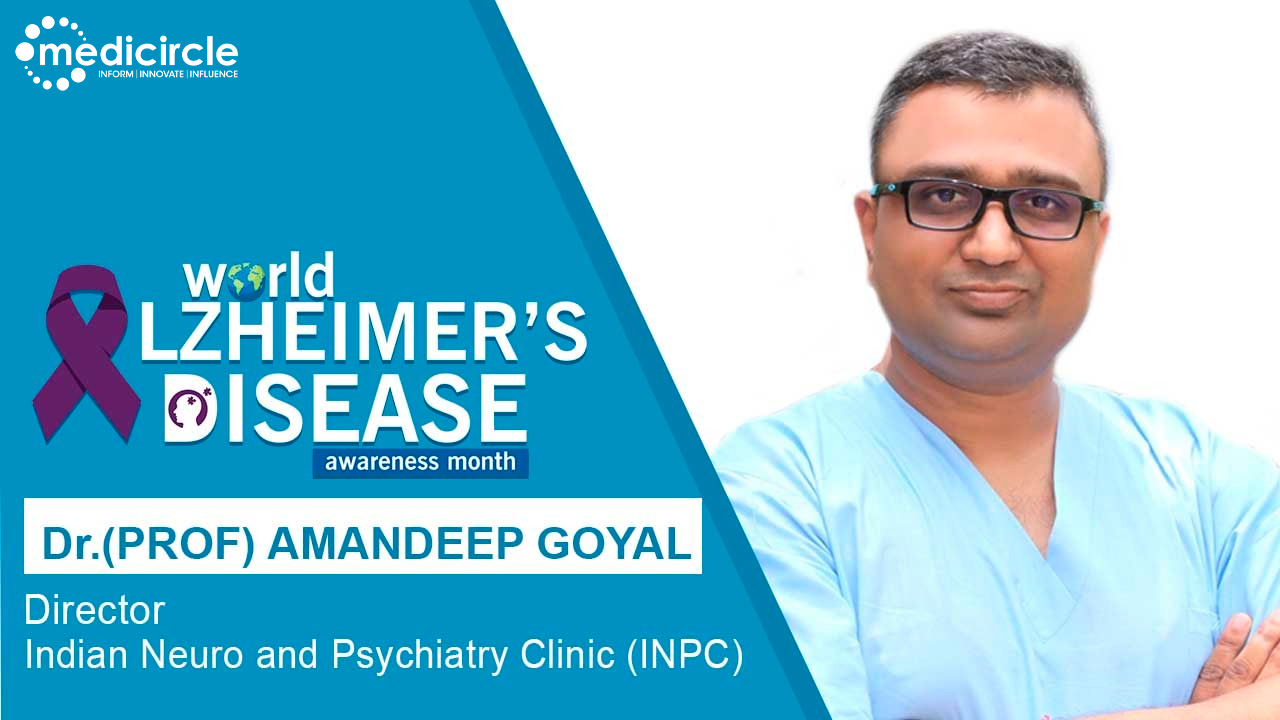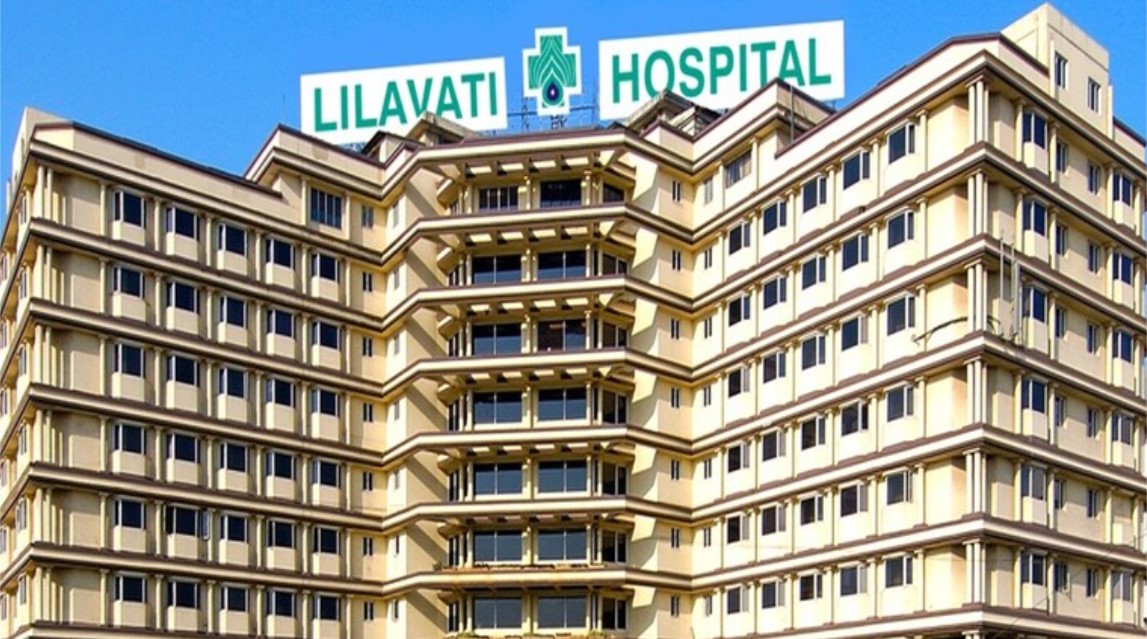The world celebrates Alzheimer’s Day to raise awareness about dementia. Dementia is a collective term for a cluster of symptoms. There are difficulties with memory, language, and other thinking-related skills. 70% of all dementia cases are Alzheimer’s, making it the most common form of dementia. According to WHO, 47 million people, or 5% of the elderly population suffer from dementia as of 2015. By 2030 the number of affected will rise to 75 million and by 2050 it will be 132 million. GlobalData estimates 16 countries where 6% of all 60 years old and above face dementia. India features in this. At least 4 million Indians suffer some form of dementia.
Dr. Amandeep Goyal is the Director of the Indian Neuro and Psychiatry Clinic. He specializes in treating Neuropsychiatric disorders, addiction disorders, migraines, and headaches. He has got rich clinical experience in clinical psychology and neuropsychiatry for 15 years. He has won many awards like the Young Scientist Award in 2015.
All you need to know about dementia
Dr. Amandeep Goyal informs, “ Dementia is a neurodegenerative disorder in the brain cells which are also called neurons. The quality, intensity and number of neurons reduce and degenerate. This is a progressive disorder which means this disorder increases with time. This progression of disorder impacts the family and person(patient) suffering from it. It affects-
Language capabilities Writing capabilities Reading capabilities Talking capabilities Memory Identifying capabilities Thinking capabilities Daily activities Self-care activities
The patient’s entire life and life get affected and disturbed. It is a disease that affects the family and patient both. It's a huge burden on the family of the patient suffering from this disorder.”
Dementia and Alzheimer's disease
Dr. Amandeep Goyal informs, “Alzheimer's disease is the biggest single disorder that accounts for dementia. Alzheimer's disease constitutes about 70 % of dementia cases. Dementia and Alzheimer's disease affect the elderly in 90 % of the cases. The human expectancy is about 50 - 60 % in the early 1990s. People could not live beyond 60 years of age. So, doctors and scientists were unaware of Alzheimer's disease. IT was only in 1902 where Alzheimer's disease came into existence through a scientist named “Alzheimer.” Alzheimer's disease changes the entire personality of the patient where he becomes-
Bedridden Unable to take care of oneself Unable to interact No desire to live Unable to do daily activities Not able to enjoy life with colleagues No interest Memory problems Unable to identify family members Unable to remember daily chores.”
Care for Alzheimer's disease
Dr. Amandeep Goyal informs, “The best thing for Alzheimer's disease treatment are as follows -
Consult professional expert Understand the disease Consult a psychologist and psychiatrist Understand the victim of Alzheimer's disease Understand behavior like anger, stubbornness, inappropriate behaviors Knowledge about Alzheimer's disease Knowledge about handling Alzheimer's disease Caretaking of Alzheimer's disease
There is no cure for Alzheimer's disease but symptoms can be managed with medicines.
Tips for family members suffering from Alzheimer's disease
Dr. Amandeep Goyal informs, “The best ways to handle person suffering from Alzheimer's disease are -
Try to keep the room settings stationary and do not change it Allocate a ground floor room of Alzheimer's patients Workout a plan for their memory to avoid confusion Reduce the sleep duration during the day The room should be airy and with a window for sunlight during daytime They should be able to identify their body clock between day and night Keep a wall clock for the room to identify time Keep a calendar in the room to identity dates Show them photographs of family members Q cards to understand things
This can help many family members to deal with Alzheimer's disease
(Edited by Dr.Rati Parwani)

 Dr. Amandeep Goyal gives his inputs on Alzheimer's disease and dementia. He explains that dementia and Alzheimer's disease are a problem not only for the patient but a challenge for their family members as well. Stay tuned for his expert tips at the end which can help the patient suffering from Alzheimer's disease
Dr. Amandeep Goyal gives his inputs on Alzheimer's disease and dementia. He explains that dementia and Alzheimer's disease are a problem not only for the patient but a challenge for their family members as well. Stay tuned for his expert tips at the end which can help the patient suffering from Alzheimer's disease




















.jpeg)










.jpg)
.jpeg)